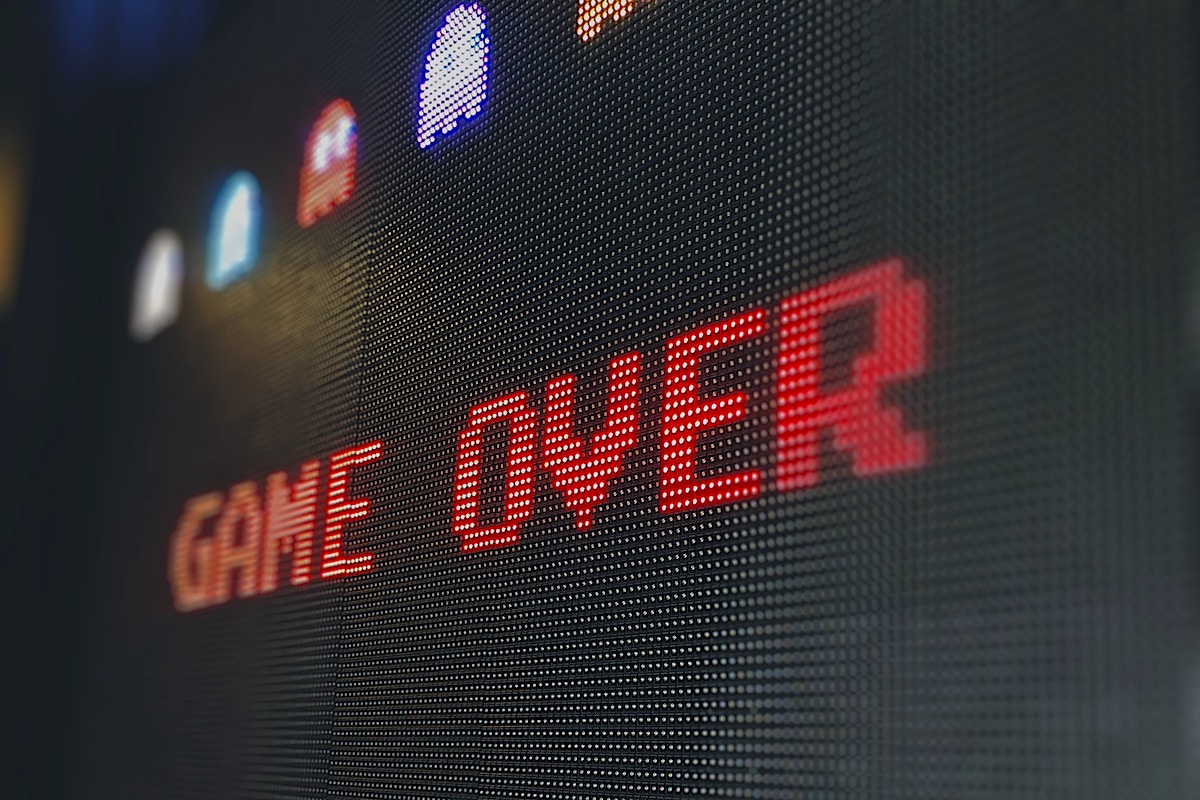Skift Take
65,000 attendees, 4,000 jobs, and $88 million in revenue won't be coming to Los Angeles in June, with leading video-game-industry trade show E3 canceled for 2023. It was meant to be the first in-person show since 2019. However, major exhibitors were unwilling to commit. Will other events follow suit?
The 2023 edition of the Electronic Entertainment Expo (E3), the world-renown gaming event, has been canceled. Around 65,000 people were expected to be in Los Angeles for the main and satellite events this June. The cancellation means that the city will go without a major gaming event. It also won’t benefit from the estimated 4,000 jobs and $88 million in revenue that the show typically generates.
The event has yet to take place in an in-person format since 2019. Due to the impact of the Covid pandemic, the show’s organizers, the Entertainment Software Association (ESA), canceled the 2020 edition and pivoted to a virtual-only format in 2021.
In 2022 organizers decided to cancel once more, to focus their energy on a hybrid 2023 edition. Following this, the ESA partnered with ReedPop, RX Global’s division focused on pop culture events, to produce the 2023 edition.
However, this was not to be. Despite opening registration on March 9, organizers pulled the plug on Thursday, with gaming site IGN breaking the news.
This was confirmed in an email from ESA to its members that stating that while E3 “remains a beloved event and brand,” the 2023 version “simply did not garner the sustained interest necessary to execute it in a way that would showcase the size, strength, and impact of our industry.”
Thwarted Return
The show started in 1995 and was, for many years, the place where major games and hardware were launched. When the ESA canceled the 2022 edition, exhibitors were still dealing with the impact of the Covid pandemic. This year it was hoping for a triumphant return.
ReedPop was brought in to help fix some of the show’s challenges and demonstrate professionalism. In its bold news release from July, ReedPop highlighted its credentials as the company behind PAX, New York Comic Con, and Star Wars Celebration. It also claimed it would “reunite the global video game industry for a week of titanic AAA reveals, earth-shaking world premieres, and exclusive access to the future of video games.
In a statement after the show’s cancellation was confirmed, ReedPop significantly changed its tone. “This was a difficult decision because of all the effort we and our partners put toward making this event happen,” said Kyle Marsden-Kish, global vice president of Gaming, ReedPop. “For those who did commit to E3 2023, we’re sorry we can’t put on the showcase you deserve and that you’ve come to expect from ReedPop’s event experiences,” he added.
Exploring the Causes for the Cancellation
“Marketing needs [of game publishers] have evolved and they started evolving even before the COVID-19 pandemic,” said ESA president and CEO Stanley Pierre-Louis in an interview with Games Industry.biz.
Pierre-Louis suggests three core reasons for the show’s cancellation:
- Altered timelines for game development caused by the Covid pandemic
- Companies reassess how they invest in marketing activities due to economic headwinds
- Virtual launches gaining popularity
While the impact of the Covid pandemic is hard to assess independently of other factors, the biggest single factor contributing to the cancellation is the lack of major exhibitors taking stands. IGN published an exclusive story in January that suggested that all three major console manufacturers (Sony, Microsoft, and Nintendo) would not be present. In addition, other important names, including Ubisoft, Sega, and Tencent, all pulled out.
Essentially, it may have been a case of too little too late. The overhyping and underdelivering of the show seem to be a common theme on the mostly negative Reddit threads about the causes of the show’s downfall.
For some experts, the show was declining, and turning it around would never be easy. “This was an almost impossible task they took on…convincing the games industry to return to that which was already becoming stale prior to the pandemic,” said Bill Young, head of games at Twitch on LinkedIn.
While the feeling around the show may have been negative, industry insiders took to social media to share their disappointment. “Disappointing news about E3. For its flaws, it remained a valuable moment for us to get face time with developers,” said Evan Lahti, global editor-in-chief at PC Gamer on LinkedIn.
The Impact on Los Angeles
The city of Los Angeles and the Los Angeles Convention Center are among the biggest losers in light of the show disappearing from the city’s convention calendar at such short notice.
In a statement to Skift Meetings, Los Angeles Tourism & Convention Board said, “Los Angeles is and has been the ideal destination for E3, having hosted over 20 conventions. While we understand that the organizers have chosen not to hold this year’s show, LA remains one of the nation’s most appealing and welcoming convention and meetings destinations.”
The organization sees this setback as just another chapter in the gaming/tech sectors traditionally characterized by “mergers, consolidations, and changes in management.” They are confident that “LA will continue to be a destination of choice for gaming events” because of the presence of the entertainment industry and international access.
Alternative Events
With gaming essentially an online activity, it’s not surprising that virtual launches have gained ground since the Covid pandemic. E3 has live-streamed the main sessions for at least a decade as a way to maximize the reach of the announcements held at the show.
One of E3’s competitors is Summer Game Fest, a spin-off virtual event that started in 2020. This year’s edition will be held in person for the first time at the 6,000-capacity YouTube Theatre in Los Angeles and live-streamed virtually to select IMAX theatres in the U.S. and Canada. It is scheduled for June 9, just days before the originally planned dates of E3, June 13-16.
Several companies will still hold events they had planned around E3. Microsoft is hosting its Xbox showcase on June 11, and Ubisoft will host their in-person Ubisoft Forward Live in LA on June 12. There is a question mark around the June calendar of events events should E3 not return.
CES is one large show that stands to benefit from E3’s struggles. Gaming has always had a significant presence at the Vegas show. In fact, the show’s organizers, the Consumer Technology Association (CTA), are actively pursuing research on the U.S. gaming market. Despite the 2023 edition of CES attracting only 65 percent of its average pre-Covid attendance, show organizers are confident in its success. Having Sony, who was absent from E3’s 2019 show, as one of its exhibitors is also a feather in CES’s cap.
“Today’s Augmented Reality, Virtual Reality, and haptic hardware and software put you inside the game – engaging all your senses – as Sony’s PlayStation VR2 did at CES 2023. CES 2024 is where the world will see what’s next across gaming, hardware and esports companies,” said John Kelley, CTA vice president, CES and show director.
What Comes Next?
The decision not to participate in a show like E3, known for extravagant launches, may be due to potential backlash against extravagant spending on marketing activities. Technology companies have laid off more than 160,000 employees this year, according to tech layoffs tracking site Layoffs.fyi, so the focus is clearly on cost-cutting.
Technology companies are once again struggling to justify event spend during downturns. The return on investment for participating in shows like E3, at least in the same mold as previous years, is unclear. Another example came from Morning Brew co-founder Alex Lieberman who recently tweeted apparently condemning founders for partying at this year’s SXSW festival.
This is an issue for business events at large. While the circumstances may be different, there are similarities with the 2008 financial crisis. This may sound all too familiar to event industry leaders who have spearheaded initiatives such as the Meetings Mean Business Coalition (MMBC) to showcase the value of business events.
The International Association of Exhibitions and Events’s (IAEE) CEO David DuBois, sits on the advisory committee of MMBC. He is optimistic that the industry will continue to drive social and economic successes and soon exceed the successes it enjoyed in 2019. “The value of face-to-face exhibitions and events continues to be embraced. Our global industry will continue to provide excellent return on investment (ROI) as long as both exhibitors, sponsors and attendees properly prepare (pre, during and post) their engagements,” he said.
Will E3 Return in 2024?
At this point, it is unclear if E3 will return, in any format, in 2024 and beyond. The ESA says it will continue to work with ReedPop, but for now, it remains focused on its advocacy work for the video game industry.
“We’d certainly love E3 to continue to be a part of that, but we know we’ll continue in our day-to-day roles in doing the issue advocacy for industry,” said Pierre-Louis.
Photo credit: Sigmund / Unsplash





